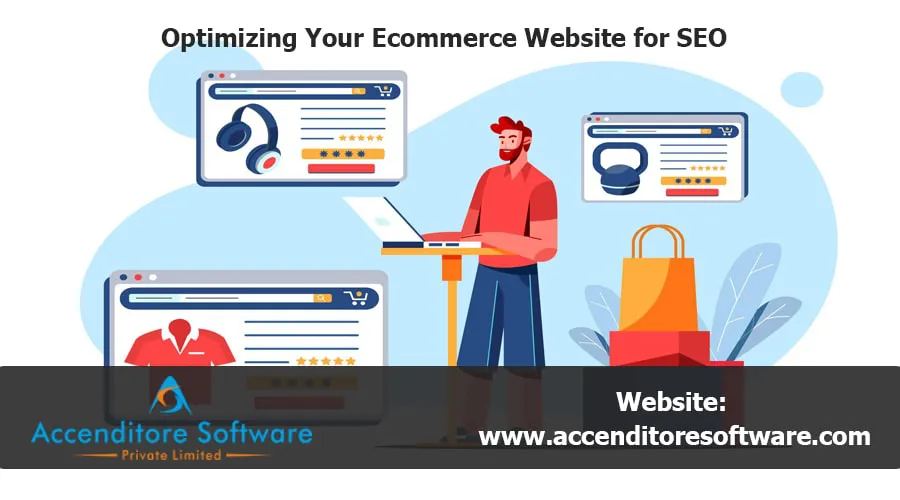
Optimizing Your Ecommerce Website for SEO
Introduction: In the competitive landscape of ecommerce, search engine optimization (SEO) is crucial for driving organic traffic, increasing visibility, and maximizing sales. With millions of online stores vying for attention, implementing effective SEO strategies becomes even more critical. In this blog, we will explore key techniques to optimize your ecommerce website for SEO success and boost your online sales.
-
Comprehensive Keyword Research: Start by conducting thorough keyword research specific to your ecommerce niche. Identify relevant keywords with a good search volume and moderate competition. Focus on long-tail keywords that align with user intent and reflect specific product attributes. Tools like Google Keyword Planner, SEMrush, or Moz Keyword Explorer can assist you in finding the right keywords to target.
-
Optimize Product Pages: Each product page should be optimized for search engines. Incorporate target keywords naturally into page titles, meta descriptions, headings, and product descriptions. Write unique, compelling, and informative product descriptions that highlight the benefits and features of the product. Use high-quality images and optimize them with descriptive alt tags.
-
User-Friendly Site Structure: Ensure your ecommerce website has a user-friendly site structure that is easy to navigate. Organize your products into relevant categories and subcategories. Implement a breadcrumb navigation system to enhance user experience and make it easier for search engines to understand the hierarchy of your website.
-
Fast Loading Speed: Page loading speed is crucial for both user experience and search engine rankings. Optimize your website's loading speed by compressing images, minimizing code, leveraging browser caching, and using content delivery networks (CDNs). Tools like Google PageSpeed Insights can provide insights and recommendations to improve your site's loading time.
-
Mobile Optimization: With the increasing use of mobile devices for online shopping, mobile optimization is paramount. Ensure your ecommerce website is mobile-friendly and has a responsive design that adapts to different screen sizes. Google prioritizes mobile-friendly websites in search results, so a seamless mobile experience is vital for SEO success.
-
Implement Structured Data: Implement structured data markup, such as schema.org, to provide search engines with additional information about your products. Structured data can enhance search results by displaying rich snippets, including product ratings, prices, and availability. This can improve click-through rates and attract more potential customers.
-
Build High-Quality Backlinks: Building high-quality backlinks is essential for ecommerce SEO. Seek opportunities for guest blogging, collaborate with influencers or industry experts, and engage in relevant online communities. High-quality backlinks from reputable websites can improve your website's authority and search engine rankings.
-
Optimize for Local SEO: If you have physical store locations or serve specific geographic regions, optimizing for local SEO is crucial. Claim your business listings on Google My Business, Bing Places, and other relevant directories. Optimize your store pages with location-specific keywords, address, and phone number. Encourage customers to leave reviews, as they can positively impact local search rankings.
-
Leverage User-Generated Content: User-generated content, such as product reviews and testimonials, can enhance your ecommerce website's SEO. Reviews provide unique, keyword-rich content and build trust with potential customers. Encourage customers to leave reviews and display them prominently on your product pages.
-
Continuous Monitoring and Optimization: Regularly monitor your ecommerce website's performance using analytics tools like Google Analytics and search console data. Track important metrics like organic traffic, conversion rates, and keyword rankings. Analyze the data to identify areas for improvement and optimize your SEO strategy accordingly.
Conclusion: Optimizing your ecommerce website for SEO is a continuous process that requires attention to detail, keyword research, and ongoing optimization efforts. By implementing these SEO strategies, you can improve your website's visibility, attract relevant traffic, and increase conversions and sales
Write a Comments
Your email address will not be published. Required fields are marked*

0 Comments